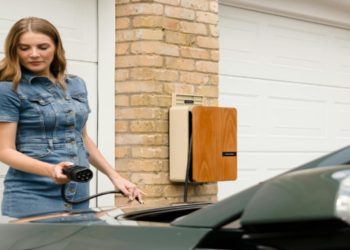Car accidents can be disruptive, leaving you without a vehicle and wondering how to navigate your daily routine. One option that many UK drivers consider is renting a car post-accident. While it might seem like a straightforward solution, understanding the pros and cons is crucial for making an informed decision that aligns with your specific needs and circumstances.
Pros of Renting a Car
Immediate Mobility
Imagine this: Your car is in the shop, but life doesn’t pause. Renting a car offers immediate mobility, allowing you to carry on with your daily activities without a hitch. Whether it’s commuting to work or running errands, having a rental car ensures you stay on the move.
Temporary Replacement
Renting a car serves as a temporary replacement while your vehicle undergoes repairs. The flexibility to choose a suitable replacement vehicle ensures that you’re not stuck with a one-size-fits-all solution. This adaptability caters to your specific needs and preferences during the car-less period. Note that companies like RTAClaims can help you secure a like-for-like vehicle. Plus, they offer 24/7 support to help you through your car accident claim.
Cons of Renting a Car
Financial Considerations
While the benefits are clear, it’s essential to consider the financial implications. Renting a car comes with costs, and these can add up quickly. From daily rental fees to potential hidden charges, understanding the financial aspects is crucial to avoid unexpected expenses. Note that using a claims management company can be away around this expense. Indeed, they can ensure it’s paid by the driver that’s at fault.
Administrative Hassles
Renting a car involves paperwork and administrative tasks. From rental agreements to understanding the terms and conditions, navigating this bureaucratic terrain can be time-consuming. However, with careful consideration and planning, you can minimise these administrative hassles.
Factors to Consider
Duration of Need
The duration for which you need a replacement vehicle plays a significant role in deciding whether to rent. For short-term needs, daily rentals might suffice, while long-term situations may call for more extended agreements. Assessing your specific time frame is key to making a cost-effective choice.
Type of Insurance
Your choice of insurance coverage, including impounded car insurance, also influences the decision to rent. If you have comprehensive insurance, it might extend to cover rental cars. Understanding your insurance policies helps determine whether additional coverage from the rental agency is necessary.
Personal Circumstances
Ultimately, your personal circumstances should guide your decision. Consider your daily activities, budget constraints, and the impact on your lifestyle. A checklist of your individual needs will help you weigh the pros and cons effectively.
Why a Like-For-Like Vehicle Replacement is Important
You’ve probably heard the term like-for-like vehicle when it comes to car crashes. If you’ve got to get your car repaired and it’s going to be in the garage for a while, you might be in a position where you need transport. Thus, you’ll be advised to hire a like-for-like vehicle in order to have a successful claim. Essentially, this is a car that’s similar to your damaged one. If you have an SUV, you’re going to hire a similar SUV. A like-for-like vehicle wouldn’t be swapping a Toyota Aygo for a Mercedes G Wagon. Here are some of the reasons it’s essential to get a like-for-like replacement vehicle.
For Fair Compensation
First, a like-for-like vehicle is important for fair compensation. When you’re in a non-fault accident, the other driver’s insurance company should be paying for you. Indeed, they’re covering the cost of repairs on your old vehicle. Then, they should also cover the price of hiring another car. If you’re choosing a model that’s vastly different from what you had, this isn’t going to be fair. It could end up that you’ve got to pay the difference in price.
To Maintain Your Standard of Living
After a car crash that wasn’t your fault, you shouldn’t be disadvantaged. Indeed, this is why the driver will pay for the hire car. It’s imperative to get a like-for-like vehicle to maintain your current standard of living. For instance, if you require an SUV for all your children, it’s not going to be fair to have to rent a smaller vehicle where they all can’t fit in the back. So, in order to maintain your standard of living, you’re entitled to hire a car of a similar size. The idea is that you shouldn’t be disadvantaged when the accident wasn’t your fault.
To Stop Financial Disadvantage
Another important element is that you shouldn’t be disadvantaged by the vehicle you have to hire. For instance, petrol is going to be more expensive if you’re filling up a Porsche 911 compared to a Toyota Prius. Thus, getting a like-for-like vehicle stops this from happening. You’re incurring the same costs as you would have before the accident.
Conclusion
hiring a car after a car accident in the UK has its merits and drawbacks. Immediate mobility, insurance coverage, and temporary replacement are compelling reasons to consider this option. However, financial considerations, insurance complexities, and administrative hassles warrant careful thought. Assessing the duration of need, understanding insurance types, and aligning choices with personal circumstances will empower you to make the right decision. As you navigate this post-accident terrain, remember that informed choices lead to smoother journeys.




![7 Best POS Software in the UK [2026 Edition]](https://todaynews.co.uk/wp-content/uploads/2026/02/7-Best-POS-Software-in-the-UK-2026-Edition-360x180.png)





































































